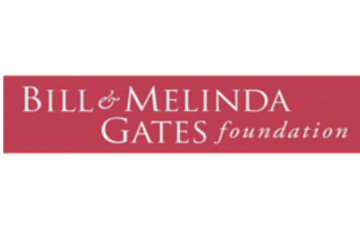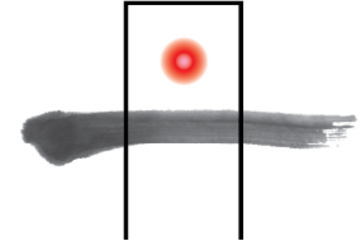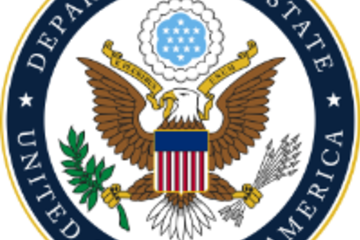Feed
-
OpportunityInnovations in Eliminating Neglected Tropical DiseasesBackground The elimination of neglected tropical diseases (NTDs) is feasible but its progress is hindered by the suboptimal implementation of available interventions. Challenges faced by NTD programs can range from poor targeting of interventions, low treatment coverage among specific sub-groups, and lack of surveillance systems that can meet the sensitivity and specificity requirements for the endgame of disease elimination. These challenges could be addressed by the development of innovative solutions but also by the application of existing tools and technologies which are effectively used by other health programs, including polio, malaria and immunization. We see an opportunity to identify and demonstrate feasibility of innovative solutions and new applications of existing technologies to address the challenges faced by national NTD programs in mapping, targeting, disease and vector surveillance, and other endgame strategies. The Challenge We have partnered with Kikundi, a community of practice for NTD program managers in Africa, to identify areas for transformational innovation in service of national NTD programs. We invite proposals that will address one or more of the following areas: Methods to rapidly map NTDs, including integrated mapping Methods to better target existing interventions Strategies to target subgroups routinely missed by programs Approaches to vector surveillance Integrated surveillance that leverages other health surveillance platforms Strategies for post-elimination surveillance, including cross-border surveillance. Funding level: up to USD $200,000 for each project, with a grant term of up to 18 months depending on the scope of the project. We are looking for proposals that: Are led by institutions, which could be ministries of health, based in sub-Saharan Africa (other global partners may be included but at least 80% of funding should go to sub-Saharan Africa) Demonstrate partnership with national NTD programs Propose innovations and applications that are scalable Have a plan for how the proposed solution would be tested or validated, and report its impact on NTD elimination goals and program efficiency For more information about this opportunity or to apply, please visit the Grand Global Challenges website.By: Derek TobiasThursday, Nov 11, 2021HEALTH AND NUTRITION

-
OpportunityDigital Health Services for Pregnant Women to Support Antenatal Risk Stratification in Sub-Saharan ABackground Digital health is revolutionizing the landscape of global healthcare. Solutions such as telemedicine, electronic medical records, and digitally enabled devices help to provide accessible, high-quality care around the world. These services have the potential to be especially impactful in low-income areas where care provided by highly trained individuals is not as common. Digital health can empower individual patients by enabling them to manage their own healthcare journeys. It can also drive systemic change through affordable, wide-reaching services that reduce the strain on healthcare professionals and facilities in low-resource settings. The Maternal, Newborn & Child Health Discovery & Tools team believes that the ability to leverage digital health systems can enhance care and reduce adverse birth outcomes in low-and-middle income countries. One area of focus is the stratification of pregnancy risk to ensure that patients are put on the appropriate care pathway. This can enable tertiary facilities to focus their constrained resources on high-risk pregnancies, while low-risk pregnancies are managed at lower levels of care. Antenatal Risk Stratification (ARS) is a portfolio of devices and data that predicts a pregnant woman’s risk of experiencing adverse birth outcomes in early pregnancy. Building and implementing an ARS solution requires three key steps. 1) Collect data on pregnant women (e.g., patient history, clinical data, and diagnostic results with an emphasis on ultrasound and hemoglobin assessment). 2) Use data as inputs in a robust, AI decision model that accurately predicts a pregnant woman’s risk of adverse birth outcomes. 3) Support clinical decision making by using the predicted risk to pre-emptively triage patients across different levels of the healthcare system. Through this process, ARS would enable more efficient resource allocation by sending the riskiest patients to high-level facilities, while referring low-risk patients to community or public health centers. ARS would aim to improve the quality of care for pregnant women by ensuring that they can receive the right level of care. Developing and delivering an ARS solution will require a robust digital backbone including tools for data collection, automated analytics, and platforms that connect to patients and healthcare providers. Before ARS can be successfully implemented, a landscape of digital health devices, partners, and services must be put into place. The Challenge We seek patient-facing digital health services for pregnant women that have been developed and are actively being provided in sub-Saharan Africa (SSA). We will consider proposals for services that can support or contribute to our ARS vision via digital applications. Types of services that we would consider include: Engagement: Services that increase the participation of pregnant women in digital healthcare. (E.g., a platform to provide group antenatal care or a telemedicine platform that allows pregnant women to send medical questions to doctors by text) Adoption of existing platforms: Services that leverage existing digital systems/platforms to support pregnant women (e.g., contacting patients about care or scheduling using an existing messaging app like WhatsApp) Data collection: Services that collect data from pregnant women that could support clinical care. (E.g., a mobile app that allows pregnant women to track their pregnancy through metrics such as weight and fetal movement) Algorithm development: Services that use data from pregnant women to assess or make predictions about their health (e.g., a web-based tool where pregnant women can input information to receive an automatic assessment on whether or not they should see a doctor) We seek projects that will help us develop and deliver an ARS solution in sub-Saharan Africa. Proposals should endeavor to build upon existing solutions to help support ARS. Potential options include (but are not limited to): Researching implementation methods for a solution (e.g., conducting market research for an existing app that supports one or more of the objectives outlined above) Expanding the scope of a solution (e.g., translating a web-based app to mobile platforms to increase engagement) Adding features/functionality to a solution (e.g., adding cloud-based data collection to a mobile app) Improving the delivery of a solution (e.g., integrating a mobile app into an existing clinical health system) Funding level: up to USD $500,000 for each project, with a grant term of 6 to 24 months depending on the scope of the project. We will consider solutions that are: Developed and/or actively supported in sub-Saharan Africa (note: development/active support does not include cases when groups outside of SSA are testing their solutions on users in SSA) Delivered in sub-Saharan Africa Providing pregnancy-related services Offered directly to pregnant women (i.e., patient-facing) Currently available for use and interested in expansion Serving a substantial and active user base in sub-Saharan Africa (e.g., more than ~100 users) Digitally integrated (i.e., have a strong, technical component) Clearly linked to the development and implementation of ARS Preference for solutions that reach women in both rural and urban areas in sub-Saharan Africa For more information about this opportunity or to apply, please visit the Grand Global Challenges website.By: Derek TobiasThursday, Nov 11, 2021HEALTH AND NUTRITION

-
OpportunityBuilding Malaria Modeling Capacity in Sub-Saharan AfricaBackground While mathematical modeling approaches have been used to understand malaria epidemiology and thepotential impact of antimalarial interventions for some time, National Malaria Control Programs (NMCPs)across sub-Saharan Africa are showing a growing interest in working with modeling units to shape theirNational Strategic Plans and Global Fund applications, as well to evaluate the ongoing impact of controlprograms. Furthermore, R&D partners in the malaria space are also increasingly working with modelers aspart of the product development process, using quantitative insights to shape target product profiles, plantrials, and understand the market for a given product.At present, many of the malaria modeling units contributing to these efforts are based in academic institutions in the Global North. At the Bill & Melinda Gates Foundation, we believe that having local modeling expertise embedded within or easily accessible to NMCPs will improve programs’ uptake of modeling as a strategic planning and evaluation tool, ultimately leading to improved data-driven decisionmaking by NMCPs. However, for this vision to be realized, the malaria modeling ecosystem across subSaharan Africa needs to be strengthened. The Challenge This RFP seeks innovative approaches to building a stronger malaria mathematical modeling ecosystemin sub-Saharan Africa. We are looking for 1 to 3 years projects that will achieve one or more of the objectives below:• Increasing the number of Ph.D.-trained mathematical modelers with malaria expertise based atsub-Saharan African institutions• Improving NMCP’s understanding of and engagement with modeling approaches as a tool that cansupport strategic planning and/or evaluation work• Connecting malaria Product Development Partners (PDPs) with sub-Saharan African modelers• Bringing together discrete modeling units across sub-Saharan Africa to share expertise• Improving modelers’ access to timely, high-quality data Funding level: up to USD $1,000,000 per year for each project, with a grant term of 1 to 3 years depending on the scope of the project. For more information about the opportunity or to apply visit the Grand Global Challenges website.By: Derek TobiasThursday, Nov 11, 2021HEALTH AND NUTRITION+1

-
ArticleUSAID Administrator Samantha Power: A New Vision for Global DevelopmentUSAID Administrator Samantha Power delivers remarks outlining a bold vision for the future of the U.S. Agency for International Development (USAID) and inclusive development around the world. The speech takes place as USAID celebrates its 60th anniversary. Administrator Samantha Power's remarks will be followed by a conversation with 2020 USAID Payne Fellow Katryna MahoneyBy: Derek TobiasThursday, Nov 4, 2021AGRI-FOOD SYSTEMS+5
-
OpportunityExpressions of Interest: Training and Evaluation Datasets for African LanguagesThe purpose of this call for EOI is to identify projects to submit full proposals to develop open and accessible datasets for machine learning applications that will enable natural language processing for languages in sub-Saharan Africa. The ability to communicate and be understood in one’s own language is fundamental to digital and societal inclusion. Natural language processing techniques have enabled critical AI applications that facilitate digital inclusion and improvements in numerous fields, including: education, finance, healthcare, agriculture, communication, and disaster response, among others. Many advances in both fundamental and applied NLP have stemmed from openly licensed and publicly available datasets.However, such open, publicly available datasets are scarce to non-existent for many African languages, and this means the benefits of NLP are not accessible to speakers of these languages. Where relevant datasets do exist, they are often based on religious, missionary, or judiciary texts, leading to outmoded language and bias. There is a need for openly accessible text, speech, and other datasets to facilitate breakthroughs based on NLP technologies for African languages.Lacuna Fund seeks Expressions of Interest (EOIs) from qualified organizations to develop open and accessible training and evaluation datasets for ML applications for NLP in sub-Saharan Africa. The TAP recognizes the importance of datasets that would create significant impact regardless of the number of speakers of the included language, as well as the need for multi-lingual datasets.EOIs may include, but not limited to: Collecting and/or annotating new data; Annotating or releasing existing data; Augmentation of existing datasets in all areas to decrease bias (such as gender bias or other types of bias or discrimination) or increase the usability of NLP technology in low- and middle-income contexts; Creating small, higher-quality benchmark data for NLP tasks in low-resource African languages. While the focus of Lacuna Fund is primarily on dataset creation, annotation, augmentation, and maintenance, proposals may include the development of a baseline model to ensure the quality of the funded dataset and/or to facilitate the use of dataset for socially beneficial applications. For more information about the opportunity, click hereBy: Derek TobiasThursday, Nov 4, 2021CULTURE AND SOCIETY+1

-
OpportunityYidan Prize 2022 for Advancing Ideas in EducationNominations are now open for the Yidan Prize 2022 to create a better world through education. The Yidan Prize is the most significant accolade in education. Tell us about the individuals and teams with the greatest potential, and we could help them on their way.Each year, the Yidan Prize is awarded to individuals and teams in two areas: Education Research: The theories of learning—science, psychology, statistics—that can help educators understand different approaches with a methodical lens. Education Development Policy and practice in learning: new methods and ways to make education more widespread—so they can champion techniques that work. We see these prizes—and the events and networks surrounding them—as a way to bring bright minds together to exchange ideas. That’s why the two prizes work in harmony: to build a network of educational experts who’re as strong in research as they are in practical application, in classrooms across the world.For example: we awarded our first Education Research Prize to Professor Carol Dweck: her pioneering work in growth mindset underpins and inspires practice. And as our 2020 Education Development laureates at CAMFED (the Campaign for Female Education) work with marginalized girls in sub-Saharan Africa, they partner with research insitutes to track what’s most effective, who’s benefiting and the costs.Where any individual or team’s work covers both research and development, we welcome two submissions: one for research and one for development.Our prizes are open to teams of up to three. That could be a research group working on a project together, or even several people contributing to the same idea from separate organizations—they don’t have to work together. If you want to nominate a larger team, choose up to three representatives. If a team does win either award, they’ll each get their own individual medal and certificate, and split the cash prize and project fund. For more information or to nominate someone, please visit the Yidan Prize websiteBy: Derek TobiasThursday, Nov 4, 2021EDUCATION

-
OpportunityEnabling Community-Oriented Policing in SenegalThe Bureau of International Narcotics and Law Enforcement Affairs of the U.S. Department of State announces an open competition for organizations to submit applications to carry out a project to help Senegalese law enforcement use community policing as a tool to improve the social contract with their citizens. The primary objective is to improve partnership with citizens and enhance governance and legitimacy through helping police and communities work more closely with one another. Transforming policing services to better serve the public is easier said than done. It is about building trust between police and citizens. Empowering them to engage with citizens to fulfill the mission of police service, which have to be equitable, transparent and effective. The cascade of changes needed to effectively develop, implement, sustain, and communicate a citizen-oriented approach that reverses decades of underperformance and memories of past abuses is vast. Changing police culture can be as difficult, if not much more difficult, than changing policies, procedures, training. In order to develop a positive public perception, police officers need to engage with the citizens of its community to build a relationship of respect and trust. This program aims to help the law enforcement agencies, defined as the national police, gendarmerie, and a local force known in French as the Agence de Securité de Proximité (ASP), in Senegal make progress towards the goal of institutionalizing community-oriented policing. The program will focus solely on Senegal throughout its duration, however INL will permit the grantee to employ regional collaboration as a means of achieving project outcomes. For more information, please visit the listing on grants.govBy: Derek TobiasThursday, Nov 4, 2021CULTURE AND SOCIETY


Leave a comment